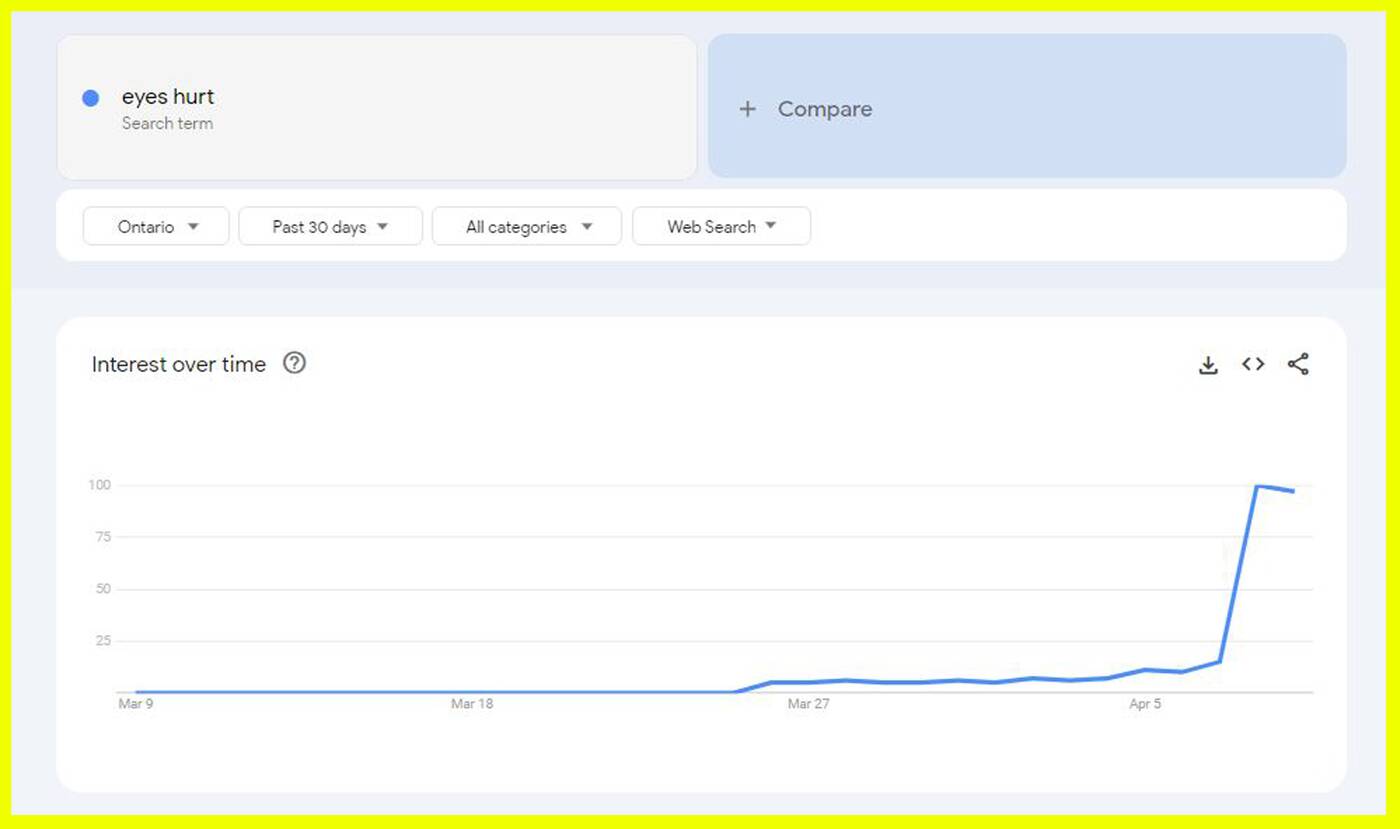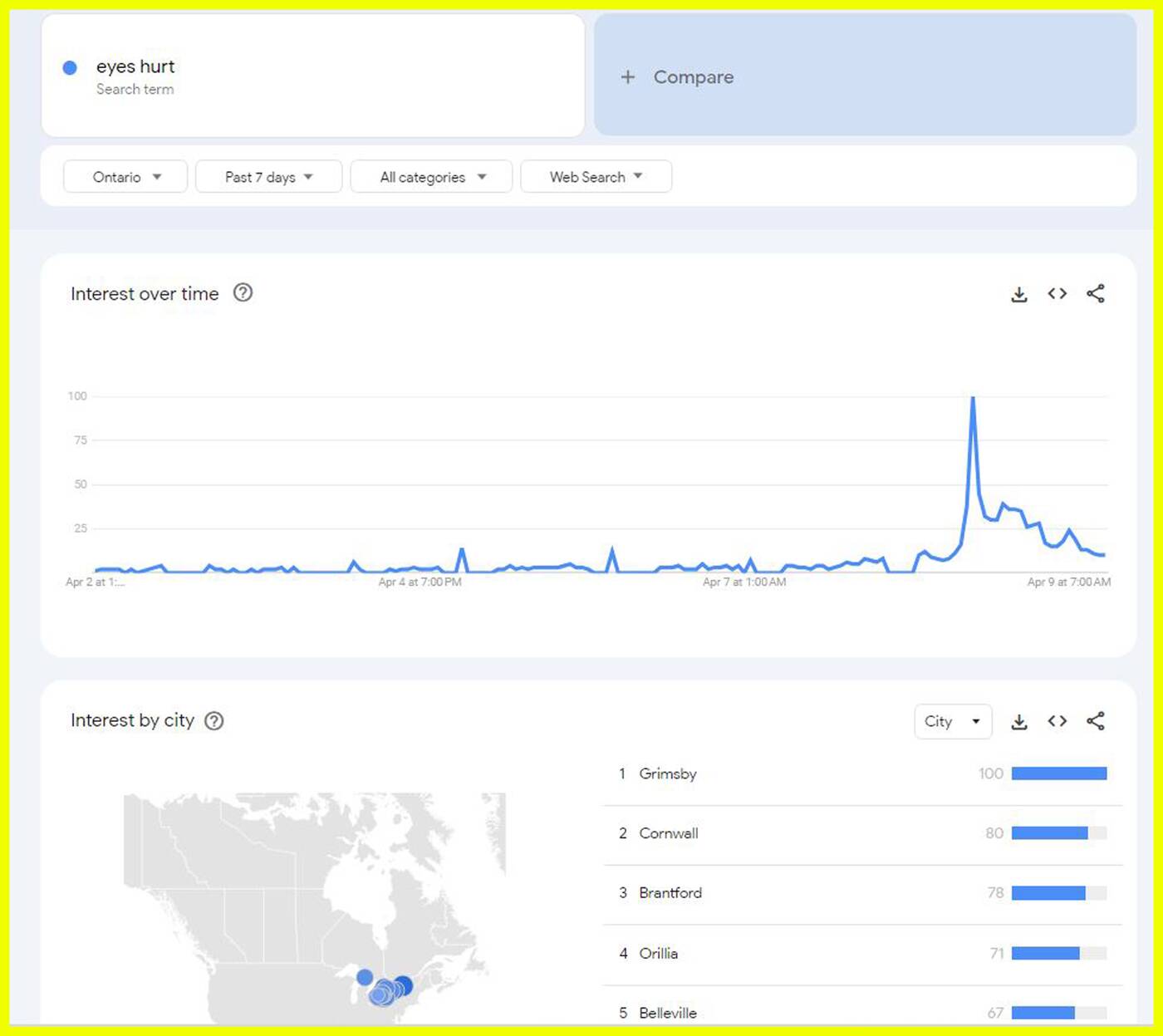Why Does Eclipse Hurt Your Eyes: A Comprehensive Guide
Have you ever wondered why looking directly at a solar eclipse can harm your eyes? The phenomenon of a solar eclipse is one of the most mesmerizing events in nature, but it also comes with risks. When the moon passes between the Earth and the sun, it creates a breathtaking shadow that captivates millions. However, the danger lies in the fact that staring directly at the eclipse can cause severe damage to your eyes, and in some cases, permanent blindness. Understanding why this happens is crucial for anyone who plans to observe this celestial event.
Throughout history, people have been fascinated by solar eclipses. These events have inspired myths, legends, and scientific research. However, the potential danger to vision has always been a concern. This article will explore the reasons why a solar eclipse can harm your eyes, provide safety tips for observation, and offer valuable information to help you enjoy this natural wonder safely.
By the end of this article, you will have a comprehensive understanding of the science behind the phenomenon, the risks involved, and how to protect yourself. Let's dive into the details of why looking at an eclipse can hurt your eyes and what steps you can take to stay safe.
Read also:Casenet Missouri A Comprehensive Guide To Casenetcom
Table of Contents
- What is a Solar Eclipse?
- Why Does Eclipse Hurt Your Eyes?
- Types of Eye Damage Caused by Eclipse
- How to Observe Eclipse Safely
- Scientific Research on Eclipse Effects
- Common Myths About Eclipse and Eyes
- Historical Perspective on Eclipse Viewing
- Tips for Parents and Educators
- Important Safety Gear for Eclipse Viewing
- Conclusion
What is a Solar Eclipse?
A solar eclipse occurs when the moon moves between the Earth and the sun, blocking the sun's light and casting a shadow on the Earth. There are three main types of solar eclipses: total, partial, and annular. During a total eclipse, the moon completely covers the sun, creating a stunning sight that many people travel great distances to witness. However, the beauty of this event is accompanied by risks to eye health.
While the moon blocks the sun, the surrounding area experiences a temporary darkening. This darkness can trick the human eye into thinking it is safe to look directly at the sun, but this is not the case. The sun's rays are still powerful and can cause damage to the retina, the light-sensitive part of the eye.
Understanding the Science Behind Solar Eclipses
The alignment of the Earth, moon, and sun during an eclipse is a rare and precise occurrence. The moon's shadow consists of two parts: the umbra and the penumbra. The umbra is the darkest part of the shadow, where the sun is completely blocked, while the penumbra is the lighter part, where only a portion of the sun is obscured. Observers in the umbra experience a total eclipse, while those in the penumbra see a partial eclipse.
Why Does Eclipse Hurt Your Eyes?
Looking directly at a solar eclipse without proper protection can cause serious damage to your eyes. The primary reason for this is the intense radiation emitted by the sun. Even during an eclipse, the sun's rays are powerful enough to burn the retina, leading to a condition known as solar retinopathy.
The retina is a delicate layer of tissue at the back of the eye that captures light and sends signals to the brain. When exposed to direct sunlight, especially during an eclipse, the retina can become damaged due to the high levels of ultraviolet (UV) and infrared radiation. This damage can occur without any immediate pain or discomfort, making it even more dangerous.
The Mechanism of Eye Damage During Eclipse
During a solar eclipse, the moon partially or fully blocks the sun, creating an illusion of darkness. This tricks the human eye into dilating, allowing more sunlight to enter. The concentrated light then damages the photoreceptor cells in the retina, leading to temporary or permanent vision loss. The damage can occur within seconds, and the effects may not be noticeable until hours or days later.
Read also:Iraq Dinars Recap A Comprehensive Guide To Understanding The Currency
Types of Eye Damage Caused by Eclipse
There are several types of eye damage that can result from looking at a solar eclipse without protection. The most common is solar retinopathy, which occurs when the retina is exposed to excessive sunlight. This condition can cause blind spots, blurred vision, and difficulty seeing colors.
- Solar Retinopathy: Damage to the retina caused by direct sunlight exposure.
- Macular Degeneration: A condition where the central part of the retina is damaged, leading to loss of central vision.
- Photokeratitis: A painful condition often referred to as "snow blindness," caused by exposure to UV radiation.
These conditions can have long-lasting effects on vision and may require medical intervention to treat.
How to Observe Eclipse Safely
Observing a solar eclipse safely requires proper preparation and equipment. The most important step is to use certified eclipse glasses or viewers that meet international safety standards. These glasses are specifically designed to block out harmful UV and infrared radiation while allowing you to view the eclipse safely.
In addition to eclipse glasses, you can use other methods to observe the event, such as pinhole projectors or telescopes equipped with solar filters. It is crucial to avoid looking at the sun directly, even during the partial phases of the eclipse.
Tips for Safe Eclipse Viewing
- Use ISO-certified eclipse glasses or viewers.
- Never look at the sun through regular sunglasses, cameras, or binoculars.
- Test your eclipse glasses before the event to ensure they are not damaged.
- Follow instructions provided by reputable organizations like NASA or the American Astronomical Society.
Scientific Research on Eclipse Effects
Scientists have conducted numerous studies to understand the effects of solar eclipses on human vision. Research has shown that even brief exposure to direct sunlight during an eclipse can cause irreversible damage to the retina. Studies also highlight the importance of public education and awareness campaigns to prevent eye injuries during eclipse events.
One notable study published in the journal Ophthalmology examined cases of solar retinopathy following a solar eclipse in Europe. The study found that many individuals suffered from vision loss due to improper viewing practices. These findings emphasize the need for widespread education on safe eclipse observation techniques.
Key Findings from Scientific Studies
Research has identified several factors that contribute to eye damage during eclipses, including:
- Duration of exposure: Longer exposure increases the risk of damage.
- Intensity of sunlight: The closer you are to the path of totality, the stronger the sunlight.
- Individual susceptibility: Some people may be more prone to retinal damage due to genetic factors.
Common Myths About Eclipse and Eyes
There are several misconceptions about solar eclipses and their effects on vision. One common myth is that it is safe to look at the sun during the total phase of the eclipse. While it is true that the sun is completely blocked during totality, it is still dangerous to look directly at the sun during the partial phases. Another myth is that regular sunglasses provide sufficient protection, which is not true as they do not block out harmful UV and infrared radiation.
Dispelling these myths is essential for ensuring public safety during eclipse events. Educating people about the risks and providing them with accurate information can help prevent eye injuries.
Historical Perspective on Eclipse Viewing
Throughout history, people have observed solar eclipses using various methods. Ancient civilizations relied on simple tools like pinhole projectors to safely view the event. In modern times, advancements in technology have made it easier to observe eclipses with greater precision and safety.
Historical records show that many cultures viewed eclipses with a mix of awe and fear. Some believed that eclipses were omens or signs from the gods, while others saw them as scientific phenomena worthy of study. Today, eclipses continue to inspire both wonder and caution, reminding us of the power and beauty of the natural world.
Tips for Parents and Educators
Parents and educators play a crucial role in ensuring the safety of children during eclipse events. It is important to teach children about the risks of looking directly at the sun and provide them with the necessary tools for safe observation. This includes eclipse glasses, pinhole projectors, and other safe viewing methods.
Organizing educational activities and workshops can also help children understand the science behind eclipses and the importance of eye safety. Encouraging curiosity while emphasizing safety can foster a lifelong appreciation for astronomy and the natural world.
Important Safety Gear for Eclipse Viewing
When preparing for an eclipse event, it is essential to have the right safety gear. Here are some recommended items:
- ISO-certified eclipse glasses or viewers.
- Telescopes or binoculars equipped with solar filters.
- Pinhole projectors or other indirect viewing methods.
Investing in quality safety gear is a small price to pay for protecting your vision during this awe-inspiring event.
Conclusion
Understanding why a solar eclipse can hurt your eyes is essential for anyone planning to observe this natural wonder. The intense radiation emitted by the sun can cause serious damage to the retina, leading to conditions like solar retinopathy and macular degeneration. By following safety guidelines and using proper equipment, you can enjoy the beauty of an eclipse without risking your vision.
We encourage you to share this article with friends and family to help spread awareness about safe eclipse viewing practices. Your feedback and comments are also valuable in helping us improve our content. Stay informed, stay safe, and enjoy the wonders of the universe!


